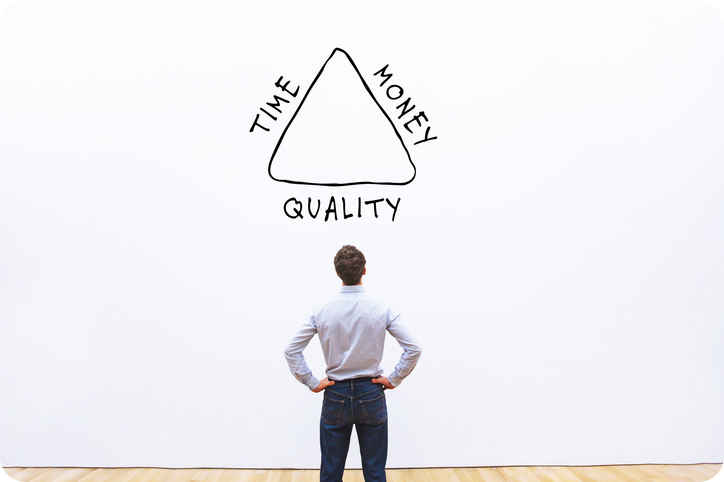Balancing Time, Money, and Quality in the Pharmaceutical Industry
Balancing time, money, and quality is crucial in pharma. Leaders must understand each other's challenges to prevent silos and enhance cooperation. Supporting departments should foster mutual understanding to maintain a healthy GMP environment, ensuring effective and balanced operations.

Balancing Time, Money, and Quality in the Pharmaceutical Industry
In the pharmaceutical industry, senior management is constantly striving to find the right balance between time, money, and quality.
While time and money are relatively easier to manage compared to quality, it's essential to understand that the performance of a company or operational unit relies on these three key domains: time, money, and quality. Am I giving each domain sufficient attention?
Even more crucial is recognizing that these three domains are interconnected and cannot be addressed in isolation. Here lies the key issue: leaders of each domain tend to defend the importance of their own area, leading to potential conflicts. So, what should be done?
At the very least, those managing each domain—particularly those overseeing quality—should strive to genuinely understand the challenges faced by the other domains. Failing to do so creates silos within the organization and fosters frustration.
In many companies, I hear suggestions like: the finance manager should attend a GMP course. Similarly, it might be recommended for the QA manager to attend a finance or project management course. This approach, though ambitious, is based on the belief that understanding each other's challenges is key to improving performance and cooperation. Understanding is a fundamental driver for all our actions. To put it philosophically: it's what makes us human.
Point 1: Develop a Comprehensive Understanding of Each Other's Challenges
Another important aspect is the QA/GMP language. With expanding guidance documents, paradigm shifts, and complex issues like data integrity, the term "quality" encompasses many facets. As a result, even many QA managers struggle to oversee the entire field of GMP, let alone maintain a holistic view of GMP operations within a profitable company.
Therefore, QA managers need support. This can only be provided if everyone involved makes a genuine effort to better understand the GMP and operational requirements of running a facility.
It's worth noting that this argument isn't specific to pharmaceutical plants; any manufacturing site has operational requirements. However, GMP is unique due to its inspection and licensing systems, along with its complex guidelines.
Avoiding Silos and Promoting Collaboration
What should not happen is for supporting departments to leave all quality decisions solely to the QA department while simultaneously implementing directives that hinder a healthy GMP environment. Examples include a flawed reward system or making IT decisions that negatively impact the e-QMS, just to name a few.
This approach is problematic because the QA department is then insufficiently challenged in their role of explaining guidelines and ensuring compliance. Additionally, the QA manager is human and can make mistakes or have off-days, just like anyone else.
Moreover, the GMP environment is not simple. While its essence is straightforward, it requires attention to every single detail—good luck to any QA manager managing that!
Conclusion
To ensure a balanced and effective operation in the pharmaceutical industry, it's essential for leaders to understand and respect the interconnectedness of time, money, and quality. By fostering mutual understanding and collaboration, organizations can prevent silos, reduce frustration, and maintain a healthy GMP environment.